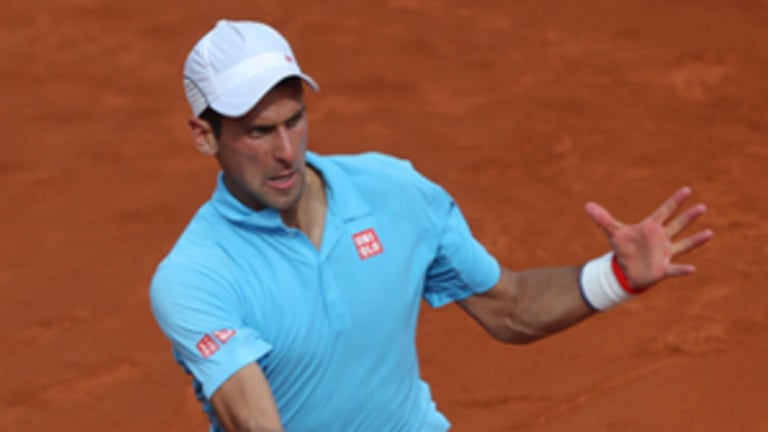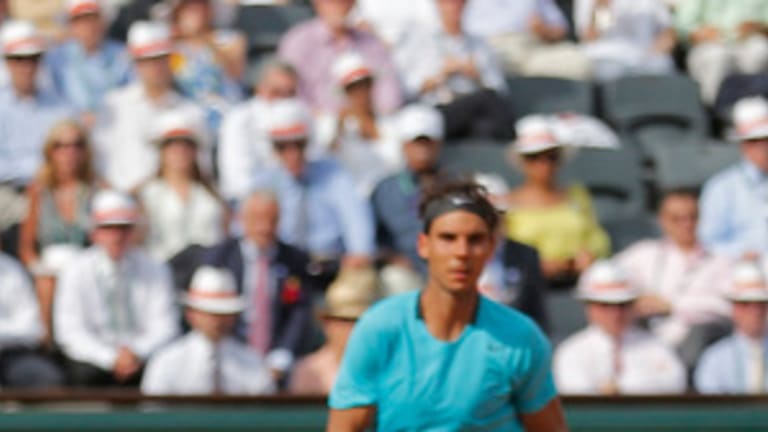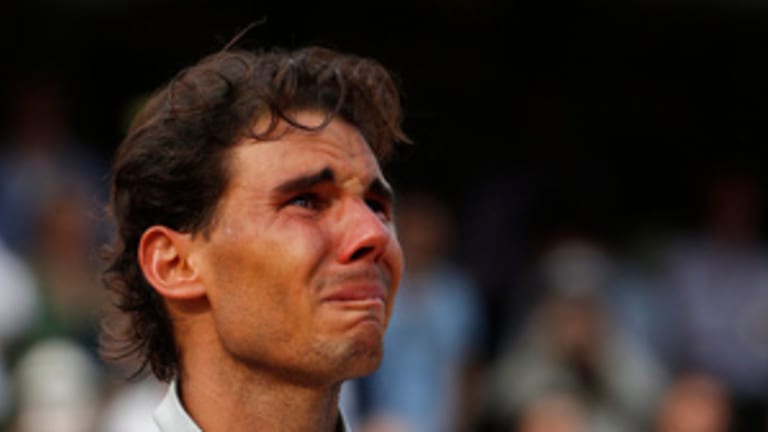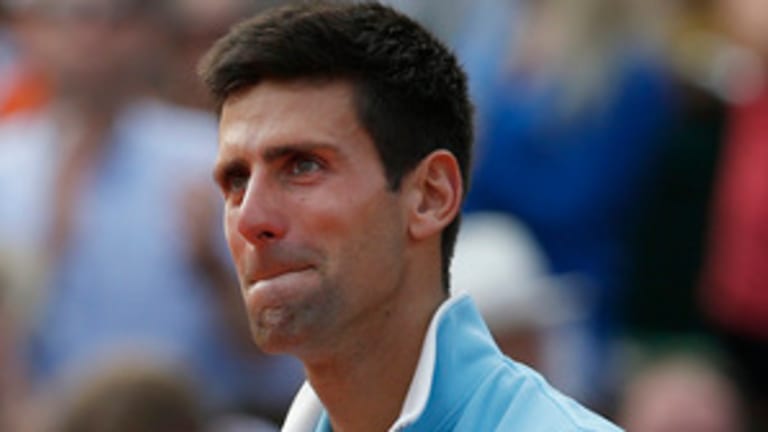PARIS—Look at him, toweling off during a brief respite between points late in the second set. His powder blue shirt sticks to the perspiration on his back, face buried in the towel, wet black hair hanging in tentacles. His shoulders are scrunched up, and he’s hunched over very nearly into a right angle, as if he can’t quite catch his breath, or he fears he’s going to vomit from the exertion and the anxiety.
He looks like an old man, an old man with the weight of the world on his shoulders, and that’s alright because that weight is there. It’s tough to be king. Some of your subjects demand your abdication. Princes conspire against you, recruiting agents from foreign climes to help plan your demise. Armies are massed on dark shores, prepared to take what you have and impale your head on a stake. It’s tough to be king, alright, even if your kingdom is merely made of red clay, as is the kingdom of Rafael Nadal.
Today, Nadal extended his extraordinary reign at the French Open with a convincing dismissal of the man who would be king, Novak Djokovic. Playing with a beautifully modulated combination of reckless abandon alternating with crafty prudence, Nadal clinched his record ninth title at Roland Garros, frustrating and finally turning back Djokovic’s bid to dethrone the King of Clay, 3-6, 7-5, 6-2, 6-4.
“I know to play against him I need to play to my limit, I need to play aggressive,” Nadal said afterward. "But to play aggressive you need to be with confidence, you need to feel the ball. Sometimes you don't have that great feeling. I felt that the match was more in his hands at the beginning than in my hands. I was winning more points from his mistakes than from my winners, and I need to change that. I think in the second set that the dynamic of the match changed. I was able to play more aggressive. I did better things.”
Better things indeed. After that slow start, and with both men suffering from the unexpectedly sultry weather, Nadal was able to assert his natural clay-court authority. In that he was aided immeasurably by this particular court, Court Philippe Chatrier, which is nothing less than his castle.
As Djokovic said: “It's not impossible, but it's very, very difficult to stay with Rafa in this court, throughout the whole match on the highest level of performance. It's normal that you have ups and downs. I was just hoping that in the fourth I would be able to come back. I started feeling, as I said, a little bit better, but I wasn't managing to, you know, bring my A-game when it was most needed.”
The match began in bright sunlight and pleasant early summer heat—a much-discussed advantage for Nadal. But there were signs early on that either Nadal’s blood wasn’t flowing as freely as it ought to have, or he was just plain nervous. Unfortunately for Nadal, that other much-discussed issue—his forehand that has misbehaved a bit this spring—further complicated matters.



